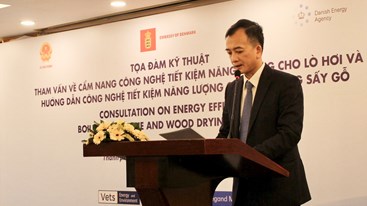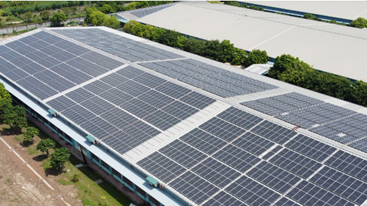Thursday, 02/05/2024 | 19:23 GMT+7
France's consumption rose by 7% – and in Europe only Denmark and Ireland used less energy per unit of GDP than UK
The EU energy commissioner, Günther Oettinger, is expected
to recommend member states are set individual targets on efficiency
improvements.
The UK is one of the top performers in Europe on energy efficiency, according to a European commission report.
Energy use fell by more than 5% from 2000 to 2008 in the UK – the only major European economy to see a drop. Germany's consumption held level, while France's rose 7%. Overall, energy use in the 27 EU countries increased by more than 4%.

Britain also scores highly on energy intensity, a measure of how much power is used to generate every euro's worth of economic output.
Only Denmark and Ireland used less energy per unit of GDP, according to the draft document, sections of which have been seen by the Guardian.The "energy per GDP" measure is affected by the UK economy's reliance on the banking sector, which is light on carbon dioxide emissions.
Overall, the EU cut its energy intensity by 10% over the eight years.
The draft report is part of the EU's energy efficiency strategy, details of which will be set out this week. Günther Oettinger, the EU's energy commissioner, will call on governments to take urgent action to meet the EU's goal of improving energy efficiency by 20% by 2020.
Achieving the goal would generate about 2 million jobs, the commission estimates. Oettinger is expected to recommend member states are set individual targets on efficiency improvements, reflecting each country's economy. Some of the east European member states have vastly improved their energy efficiency in recent years, but still have more opportunities for improvements at lower cost than some of the more advanced Western European economies.
The energy efficiency report has been carefully timed – on Tuesday the climate change commissioner, Connie Hedegaard, will unveil her own "roadmap to 2050" showing how the EU can cut greenhouse gas emissions by at least 80%, in line with the its international commitments.
The roadmap is contentious, because of a deepening row in Brussels between the energy commissioner and a group of countries that want to toughen the 2020 emissions-cutting target, from the current goal of a 20% reduction target to a stiffer reduction of 30% by 2020. Oettinger opposes the tougher target, saying it will lead to "faster de-industrialisation" in Europe, and is backed by some large business lobbies. Chris Huhne, the UK's climate change secretary, is leading the call to raise the target, with the support of some large businesses including BSkyB, Vodafone and Marks & Spencer.
According to the roadmap, the EU's emissions will fall by 25% by 2020 in any case if the current commitments on energy efficiency are fulfilled. This means that cutting emissions by 30% by 2020 will be more cost-effective than sticking with the weaker target.
A group of six energy companies, including Scottish and Southern Energy, wrote to the commission on Friday to support a compromise target of 25% emissions cuts in the next decade.
guardian.co.uk








.jpg?w=367&h=206&mode=crop) Energy efficiency and conservation usage is an important aspect of the national energy development strategy
05/03/2024
Energy efficiency and conservation usage is an important aspect of the national energy development strategy
05/03/2024
 Challenges and Opportunities to promote energy efficiency market in Vietnam
Challenges and Opportunities to promote energy efficiency market in Vietnam
 The Ministry of Industry and Trade requests government agencies to coordinate in organizing Earth Hour 2024
The Ministry of Industry and Trade requests government agencies to coordinate in organizing Earth Hour 2024
 Consultation on Energy Efficiency Boiler Catalogue and Wood Drying Guideline
Consultation on Energy Efficiency Boiler Catalogue and Wood Drying Guideline
 Son Ha Co., Ltd, applies energy efficiency and conservation measures
Son Ha Co., Ltd, applies energy efficiency and conservation measures
.png?w=367&h=206&mode=crop) Request for expression of interest - C2.1.13: Capacity Building on energy efficiency policies development
Request for expression of interest - C2.1.13: Capacity Building on energy efficiency policies development
 Phuc Kien Co., Ltd., is effectively implementing energy-saving measures
Phuc Kien Co., Ltd., is effectively implementing energy-saving measures
 Request for expression of interest - C2.1.12: Independent monitoring of safeguards implementation
Request for expression of interest - C2.1.12: Independent monitoring of safeguards implementation